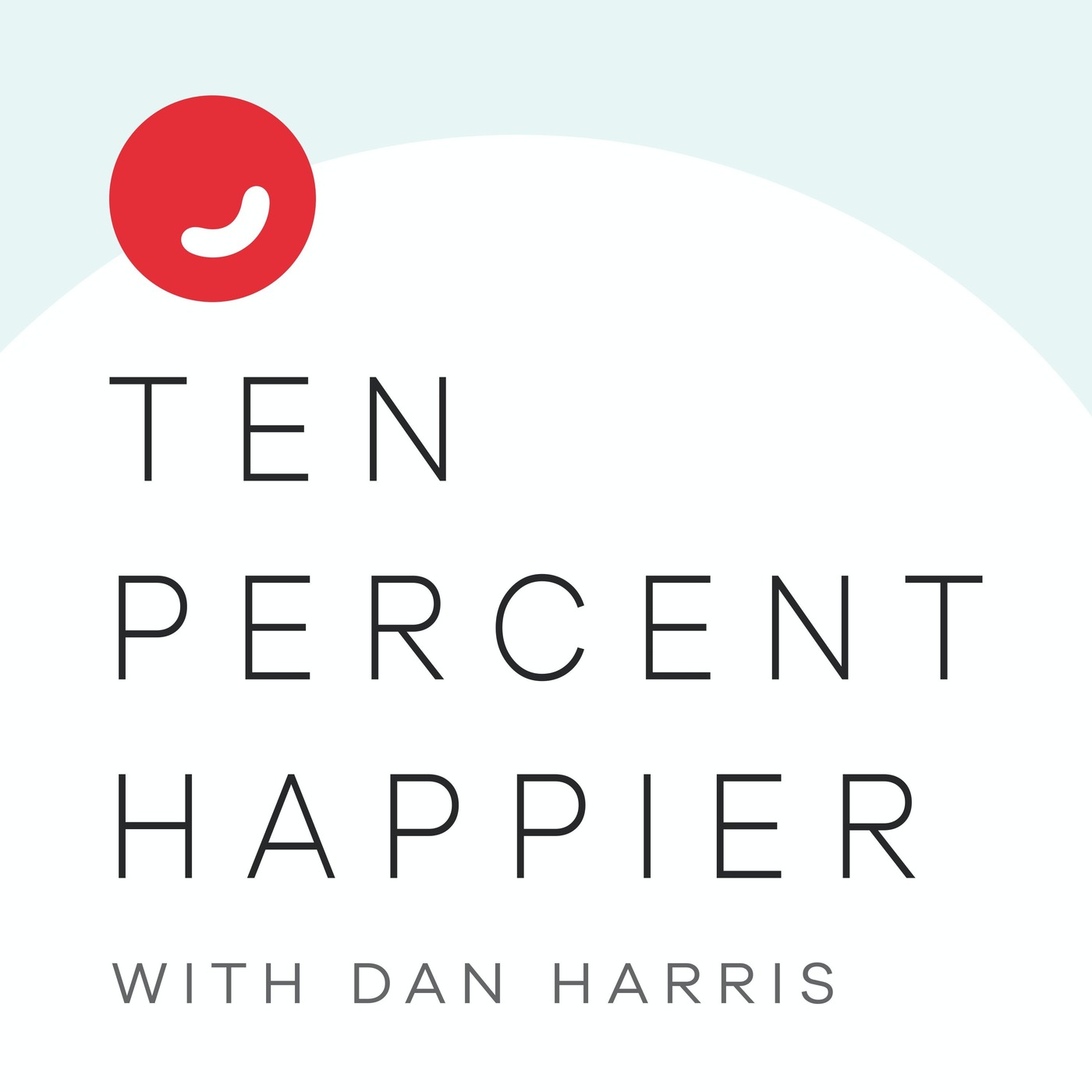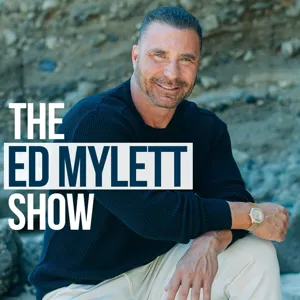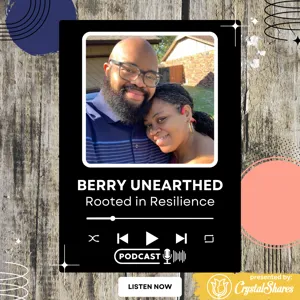Podcast Summary
Using Stress to Our Advantage with Medupé Akanola: Through meditation and changing our response to stress, we can use it to our advantage, improve creativity, and better handle its impact on us.
While stress is a natural part of life and cannot be completely eliminated, we can change how we respond to it. Medupé Akanola, a stress researcher and associate professor at Columbia Business School, believes that in certain circumstances, we can even use stress to our advantage. Akanola, who has a fascinating background and is a recent convert to meditation, shares her insights on thriving under stress, the relationship between stress and creativity, and the impact diversity has on stress in the new 10% Happier course, "Stress Better." The course, which is available for free on the 10% Happier app, consists of short videos followed by guided meditations, and its central idea is that we can't change the fact that life is stressful sometimes, but we can change how we respond to it. Akanola's personal story of starting meditation to find peace and happiness is inspiring, especially given her high-achieving background and the challenges her parents faced as immigrants in the US.
Parents' pursuit of a better life and the pressures to succeed: Through mindfulness and community support, managing stress and finding success is possible.
The pursuit of a better life and opportunities led the speaker's parents to move to the US from Ghana, bringing with them the stresses of adapting to a new environment and making ends meet. This stress was passed down to their children, who attended a high-achieving school in New York City and faced their own pressures to succeed. The speaker reflects on how these experiences have shaped her and the importance of learning to manage stress through practices like mindfulness and breathing exercises. The conversation also touches on the role of community and mentors in helping the family navigate their new life in the US. Easter at Whole Foods Market offers an opportunity to celebrate loved ones and enjoy high-quality ingredients for a special brunch.
Exploring Easter Brunch Options and Emotional Growth: Whole Foods Market provides quality Easter brunch choices, including affordable options from their 365 brand. DoorDash offers convenience for Easter shopping. The Hoffman Institute helps individuals understand and connect with their emotions for personal growth.
Whole Foods Market offers high-quality options for Easter brunch, including their 365 by Whole Foods Market brand, which is more affordable than cage-free eggs. Additionally, DoorDash can be a convenient solution for Easter shopping, allowing you to order groceries online and have them delivered to your door. During our conversation, I shared my experience attending the Hoffman Institute, a place where individuals work to understand and identify unhealthy patterns from their past and learn to connect with their emotions. For me, this meant recognizing the habit of suppressing my emotions as a middle child and the confusion I felt about wanting children. By acknowledging and understanding my emotions, I gained clarity and insight into my desires and goals. If you're seeking to better understand your own emotions and patterns, the Hoffman Institute may be a valuable resource.
Exploring Emotional Well-being at The Hoffman Institute: The Hoffman Institute offers transformative experiences through meditation and guided sessions, helping individuals connect with emotions and make meaningful changes. Tonal meditation and Vipassana retreats are effective techniques for emotional expression and letting go of suppressed emotions.
The Hoffman Institute offers a transformative experience for individuals seeking to live more fulfilled and happier lives. Through various techniques like meditation and guided sessions, individuals can identify and address patterns and habits that hinder emotional expression and overall well-being. The Institute attracts people from diverse backgrounds, ages, and professions. During her experience, the speaker discovered the value of tonal meditation, which helped her connect with her emotions and bodily sensations. She also learned about Vipassana meditation, a 10-day silent retreat that focuses on letting go and feeling bodily sensations, which was recommended for her due to her suppressed emotions. The Hoffman Institute provides a safe and supportive environment for individuals to explore their inner selves and make meaningful changes.
Overcoming challenges in Vipassana meditation: Vipassana meditation can be difficult, but being surrounded by supportive individuals and understanding the normal experiences can help overcome challenges and find peace.
The Vipassana meditation technique, which involves a body scan and focusing on bodily sensations, can be challenging for some individuals, especially during long retreats. The speaker described feeling frustrated and tortured during her hour-long meditation sessions before attending a retreat in India. However, the experience of being surrounded by other brave individuals from different countries during the retreat shifted her perspective and gave her the courage to continue. The retreat also provided validation through recorded teachings that explained the normal experiences of the meditation process, such as restlessness and emotional release. Ultimately, the speaker found peace and understanding through the practice, despite initial discomfort and doubts.
Physical pain can be a sign of unaddressed emotions: Unaddressed emotions, such as grief, can manifest physically and return during times of introspection. By being present with our bodies and emotions, we can uncover and process hidden feelings, leading to healing and self-awareness.
Unaddressed emotions, particularly grief, can manifest physically and surface during periods of introspection and personal growth. The speaker's thumb pain, which disappeared after processing her grief, returned during a meditation retreat, indicating the presence of deeper, repressed emotions. These emotions, some of which were generational, stemmed from various experiences in her life, including her mother's unresolved grief and her own miscarriages. By being present with her body and emotions, the speaker was able to uncover and process these hidden feelings, leading to a greater sense of self-awareness and healing.
Experience deep interconnectedness through meditation: Meditation helps increase presence, calmness, and emotional openness, leading to a deeper understanding of interconnectedness and improved reactions to external triggers
Meditation has the power to connect us with ourselves and others in profound ways. The speaker shared her personal experience of feeling her friend's energy through another person during meditation, which deepened her understanding of interconnectedness. Since then, she has made meditation a daily practice, leading to increased presence, calmness, and emotional openness. Despite initial struggles, she found that meditating helped her react less to external triggers and be more attuned to her inner emotions. The speaker encourages embracing the full range of emotions and recognizes the importance of developing both resilience and vulnerability. Overall, meditation has transformed her life, making her more present, calm, and open to the world around her.
Understanding the power of stress: Recognizing the difference between debilitating and enhancing stress can lead to increased creativity and improved performance in life and work.
Embracing a wide range of emotions, both personally and professionally, can lead to a happier and healthier society. Stress is not always negative; it can be adaptive and enhance performance. The key is recognizing the difference between stress that debilitates and stress that enhances. When we're stressed, noticing the underlying reasons for our stress and focusing on our purpose can help shift our mindset from debilitating to enhancing. Research also suggests that being in a negative mood can lead to increased creativity in certain situations. By understanding these mindsets and techniques, we can better navigate stress and harness its power to improve our lives and work.
Embrace stress as a positive ally: By changing our mindset towards stress, we can improve performance and enter a flow state. Remember past experiences and interrogate the source of stress to find motivation.
Stress, although often perceived negatively, can actually be beneficial if we change our mindset towards it. Our bodies are designed to respond to stress with a physiological reaction that prepares us to act. By reappraising stress as a positive sign instead of a negative one, we can improve our performance and even enter a flow state. This involves recognizing that stress isn't harmful but rather an ally that propels us forward. For those who find it challenging to manage stress, particularly in the context of panic disorders, practice and reflection can help. Remembering past experiences where we thrived under stress can provide the necessary confidence to push through current challenging situations. The second technique is to interrogate the source of stress by asking ourselves why we're feeling stressed and what's truly important to us. This can help us identify the meaning behind the stress and use it as motivation rather than letting it overwhelm us.
Understanding the reason for stress can help manage it effectively: Recognizing emotional drivers of stress can help reduce its impact and feel more confident in abilities
Recognizing the underlying reason for our stress can help us manage it more effectively. When we acknowledge that we care deeply about something, we can reframe our stress as a positive force driving us towards our goals. For example, if you're feeling anxious about an upcoming presentation, remind yourself that you care about making a difference for your audience and that your presence and expertise can help them. By focusing on the purpose behind your stress, you can reduce its impact and feel more confident in your abilities. Additionally, reflecting on past successes and the positive impact you've had can help reinforce your belief in yourself and your abilities. Overall, recognizing and addressing the emotional drivers of stress can help us approach challenges with a more positive and productive mindset.
Understanding and coping with societal pressures and stressors: Acknowledge societal pressures, interrogate their sources, find healthy coping mechanisms, and embrace the 'loyal soldier' idea for personal growth.
Carrying the weight of societal pressures and stressors, particularly for marginalized communities, can be debilitating and even life-threatening. It's essential to acknowledge and interrogate the sources of our stress to uncover what truly matters and find healthy ways to cope. The speaker's experience as a successful African-American woman, who has thrived despite the added pressures, offers valuable insights. She emphasizes the importance of understanding that stress is a constant presence and encourages finding calm above the water through self-reflection and introspection. Additionally, she shares the concept of the "loyal soldier" idea, which suggests that we can set aside our need for validation and recognition, allowing us to find peace and move forward in our personal and professional growth.
Unique stressors for marginalized individuals during feedback: Fear of appearing weak or unsure and potential discrimination can hinder valuable feedback for growth in predominantly white environments, leading to physiological responses of threat and stress during feedback exchanges.
The experience of being the only person from a marginalized group in predominantly white environments can lead to unique stressors, particularly when it comes to giving and receiving feedback. The fear of appearing weak or unsure, as well as concerns about potential discrimination or angering the feedback giver, can result in a lack of valuable feedback that is essential for growth and improvement. This issue has been extensively researched, and the physiological responses during feedback exchanges between individuals of different races often show signs of threat and stress, further complicating the situation.
Recognizing and addressing unconscious biases: Noticing and questioning reactions, having open conversations, and embracing a 'good-ish' mindset can help address unconscious biases and promote equality.
Recognizing and acknowledging unconscious biases and their impact on our behavior is crucial for creating an inclusive and functional society. The physiological responses to certain situations, even if not consciously recognized, can reveal biases that hinder equal treatment of individuals. To address this, it's essential to notice and question our reactions, have open conversations, and be willing to learn and grow. Embracing a "good-ish" mindset, acknowledging our imperfections, and being open to feedback can help us become more conscious and make positive changes. By increasing diversity consciousness and challenging our assumptions, we can bridge gaps and work towards creating a more equitable world.
Impact of stress on decision-making and unconscious bias: Stress can affect decision-making, leading to unconscious bias. Self-awareness practices like meditation can help reduce reactivity to stress and improve decision-making accuracy. Addressing unconscious bias and ensuring equal treatment for all is essential.
Self-awareness, particularly through practices like meditation, can help individuals become less reactive to stress and make more informed decisions. This was highlighted in a study where the researcher examined the impact of stress on police officers' decision-making during shooting exercises. The findings showed that officers under stress were accurate with unarmed black targets but less accurate with armed white targets, indicating the presence of unconscious bias. The researcher emphasized the importance of addressing bias and ensuring equal treatment for all targets, regardless of race. While awareness-raising programs like unconscious bias training can be helpful, researchers are still exploring how to predict and change biased behaviors. Overall, self-awareness and ongoing effort are crucial in reducing bias and making more effective decisions.
Understanding and addressing unconscious biases: Recognizing and adjusting biases through virtual reality training, embracing stress for creativity, and embracing diverse experiences can lead to personal growth and professional development.
Understanding and acknowledging unconscious biases is crucial for personal growth and professional development. This awareness can be enhanced through various means, including virtual reality training that measures physiological responses, helping individuals recognize and adjust their biases in real-life situations. Additionally, stress can actually fuel creativity, particularly for those predisposed to depression. By embracing a positive mindset towards stress and channeling it into creative endeavors, individuals can not only improve their mood but also make a significant impact in their personal and professional lives. This shift in perspective can lead to a clearer understanding of the world and the ability to make meaningful connections and differences. The study on task switching, which showed that multitasking can actually enhance creativity, further emphasizes the importance of embracing diverse experiences and perspectives.
Switching tasks can boost creativity: Switching tasks in an orderly fashion can prevent fixation and lead to new ideas, but constant switching isn't necessary and being aware of diverse environments can enhance creativity
Intentionally switching between tasks, also known as "uni-tasking with a switching in an orderly fashion," can actually increase creativity rather than decreasing it. This is because switching tasks can help prevent fixation on one problem and allow for new ideas to emerge. However, it's important to note that this is different from multitasking, which involves doing multiple things at once and often results in decreased productivity and increased stress. The study mentioned in the discussion found that switching between similar tasks led to greater creativity, but it's essential to give oneself the space to get unstuck and not force constant switching. Additionally, being aware of the diversity of environments and people around us can lead to valuable conversations and connections.
Open conversations and diverse perspectives: Through open conversations and embracing diverse perspectives, we can increase understanding, sensitivity, and reduce stress, ultimately leading to a more levity-filled life. Self-care and growth are essential in this journey.
Having open conversations with others, especially those from different backgrounds, can lead to new understandings and increased sensitivity. My friend Willy's perspective on representation and diversity made me more aware of my own blind spots. Additionally, embracing different meditation practices and techniques, as well as doing emotional work, can help us better understand ourselves and reduce stress, ultimately leading to a lighter and more levity-filled life. It's important to remember that there's no one-size-fits-all approach, and we should all strive to find what works best for us. Valuing ourselves enough to prioritize self-care and growth is crucial in this journey.
Prioritize Self-Care and Constructive Thinking: Value self-care, find balance in thoughts, let go of unproductive worry, navigate conflicts effectively
It's essential to prioritize self-care and value ourselves as much as we do for others. Even for those with limited time, taking small steps like giving ourselves a minute each day can make a significant difference. When dealing with interpersonal conflicts, it's crucial to find a balance between constructive thinking and rumination. Asking ourselves if our thoughts are useful can help us let go of unproductive worry and focus on repairing relationships. Additionally, being aware of how we come across to others and how they may project their insecurities onto us can help us navigate conflicts more effectively. For more information, check out Medoupe's website, www.madupacanola.com, or connect with her on LinkedIn and Twitter.
Finding balance in daily life and mindfulness practice: Practicing vulnerability and clear communication can help prevent conflicts and manage obligations while maintaining a mindfulness practice. Find moments for mindfulness in daily life, and be kind to oneself.
Practicing vulnerability and clear communication can help prevent conflicts and make it easier to manage obligations while maintaining a mindfulness practice. Shelby, from the podcast message, shared her frustration about feeling overwhelmed by daily obligations and struggling to be mindful during those moments. Dan suggested that Shelby consider a retreat to dedicate more time and space to her practice, but also encouraged her to lower her expectations and find moments for mindfulness in her daily life, such as during car rides or family visits through active listening. Overall, the discussion emphasized the importance of being kind to oneself and finding balance between dedication to a practice and the demands of daily life.
Effective listening and reflecting back: Prioritize effective listening and mindfulness practices for deeper connections and personal growth.
Effective listening and reflecting back what you've heard is crucial in engaging in meaningful conversations. It shows respect and appreciation towards the speaker, making them feel truly heard. Additionally, assessing one's schedule for pockets of time to dedicate to mindfulness practices, such as meditation, can significantly enhance overall well-being. These practices require focus, attention, and mindfulness, and the results are deeply satisfying. As always, it's essential to experiment with different tools and techniques and adjust accordingly. In summary, the key takeaway is to prioritize practicing effective listening and mindfulness, leading to deeper connections and personal growth.






